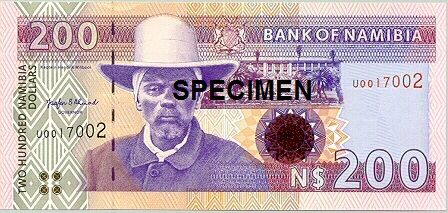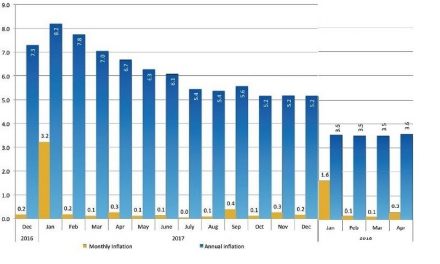
One more simple switch auction, one more step to bring substantial relief to government finances

On Wednesday, the Bank of Namibia conducted another highly successful so-called switch auction on behalf of the Ministry of Finance, relieving the government’s short-term liabilities by nearly one billion dollars, in a single day.
Switch auctions offer existing bondholders the opportunity to move their asset’s maturity out to a number of designated bonds with longer maturities at rates determined by investors through the open auction mechanism. All transaction are completely transparent, following exactly the same principles and rules as with a new issuance.
The success of the previous switch auction prompted the ministry to continue using this avenue to change its debt maturity profile. And as with the previous auction, the offer was oversubscribed signalling, first, the market’s willingness to change the maturity of their bond assets, and second, underscoring the credibility the Ministry of Finance has established with switch auctions with the stated intention to change the debt profile.
The not-insignificant amount of N$973 million was rolled over into eight bonds with longer maturities, from the more popular GC23 to the relatively new GC45, some 26 years in the future. Were the auction not successful or substantially undersubscribed, this nearly one billion dollars, or a large portion of it, would have become due on 15 April next year. Needless to say, given the current course of debt consolidation and pro-active strategies to improve the government’s cashflow, having to fork out a cool billion next April will put a serious dent in the strategy’s outcome.
Another confirmation of the ministry’s confidence to relieve pressure on short-term liabilities and eventually to extend the debt maturity profile out to thirty years, is the date of the auction. This auction was done eleven months before the GC20’s due date, giving bond holders ample time to consider their own portfolios and to restructure their assets.
As is usually the case, many interesting aspects around local liquidity, investor confidence and public debt management are revealed in the detail.
The offer was spread over eight lots ranging from N$50 million to N$187 million. The first two, GC23 and GC27 proved to be the most popular, as can be expected. These two bids were oversubscribed by 2.4 and 2.1 times respectively. For instance, for the N$123 million the ministry wanted to switch to GC23, investors offered a solid N$299 million in a total of 15 bids. This immediately shows that the shorter-dated instruments are more popular, especially as they tie in comfortably with banks’ investment profiles which are typically limited to 60 months.
GC27, for which only N$103 million was offered, received seven bids to the total value of N$223 million, reflecting reduced appetite the moment maturities are longer. This is corroborated by the subscription rates for the other six instruments. None of them was undersubscribed but all received bids only for the nominal amounts except GC35 and GC37 which were marginally oversubscribed.
In the end, taken all bids into consideration, the total nominal amount was oversubscribed by only 1.3 times but this does not distract from the obvious popularity of the shorter bonds, and of the support in the market for longer dated instruments.
I bet if a similar auction was held in the first quarter of 2017, appetite would have been much less, if there were any at all. The results of the switch auction confirms to me that the government debt consolidation course has been accepted by the market, and, most important, that the private sector’s willingness to continue participating in the capital market, is confirmed.
On Thursday the finance minister took time to explain the nitty gritty of the government’s debt profile and its obligations. Although he did not say so, I sensed he was confident with the figures he presented, perhaps emboldened in no small measure by the success of the auction he held a day earlier.













































